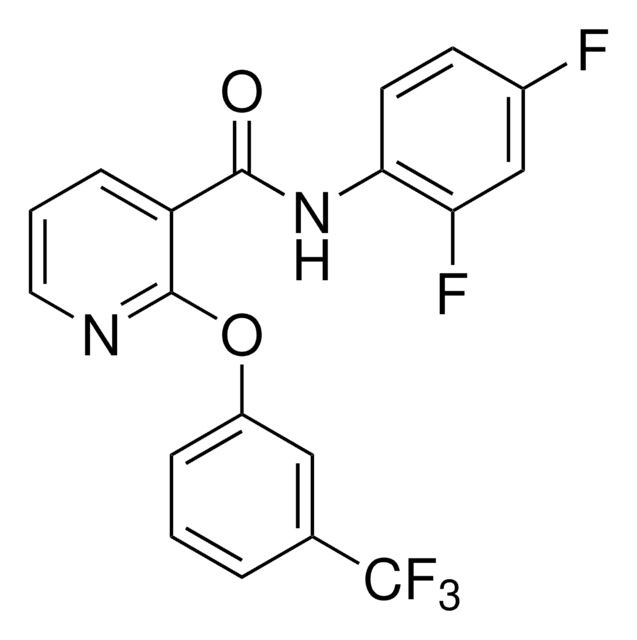36503
EPN
PESTANAL®, analytical standard
Synonym(s):
O-Ethyl O-(4-nitrophenyl) phenylphosphonothioate
About This Item
Recommended Products
grade
analytical standard
Quality Level
product line
PESTANAL®
shelf life
limited shelf life, expiry date on the label
technique(s)
HPLC: suitable
gas chromatography (GC): suitable
application(s)
agriculture
environmental
format
neat
storage temp.
2-8°C
SMILES string
CCOP(=S)(Oc1ccc(cc1)[N+]([O-])=O)c2ccccc2
InChI
1S/C14H14NO4PS/c1-2-18-20(21,14-6-4-3-5-7-14)19-13-10-8-12(9-11-13)15(16)17/h3-11H,2H2,1H3
InChI key
AIGRXSNSLVJMEA-UHFFFAOYSA-N
Looking for similar products? Visit Product Comparison Guide
General description
Application
Legal Information
Not finding the right product?
Try our Product Selector Tool.
Signal Word
Danger
Hazard Statements
Precautionary Statements
Hazard Classifications
Acute Tox. 1 Dermal - Acute Tox. 2 Oral - Aquatic Acute 1 - Aquatic Chronic 1
Storage Class Code
6.1A - Combustible acute toxic Cat. 1 and 2 / very toxic hazardous materials
WGK
WGK 3
Flash Point(F)
Not applicable
Flash Point(C)
Not applicable
Personal Protective Equipment
Regulatory Listings
Regulatory Listings are mainly provided for chemical products. Only limited information can be provided here for non-chemical products. No entry means none of the components are listed. It is the user’s obligation to ensure the safe and legal use of the product.
PRTR
Class I Designated Chemical Substances
ISHL Indicated Name
Substances Subject to be Indicated Names
ISHL Notified Names
Substances Subject to be Notified Names
JAN Code
36503-100MG:4548173901626
36503-VAR:
36503-1EA:4548173262154
36503-BULK:
Choose from one of the most recent versions:
Already Own This Product?
Find documentation for the products that you have recently purchased in the Document Library.
Protocols
analytical standard; Tokuthion, technical grade, pkg of 50 mg; Crotoxyphos; Phorate; Azinphos-ethyl; Diazinon; Azinphos-methyl; Demeton-O; Dimethoate; Chlorpyrifos-methyl
Our team of scientists has experience in all areas of research including Life Science, Material Science, Chemical Synthesis, Chromatography, Analytical and many others.
Contact Technical Service

